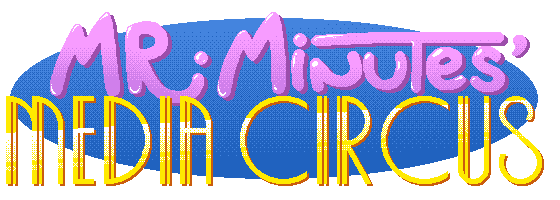"Caravan: SandWitch" Review
Originally published on April 17, 2025.
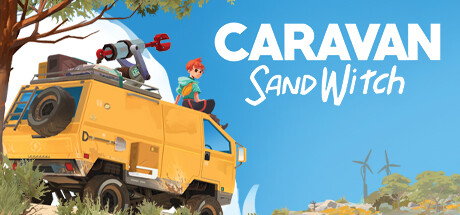
Source: Steam.
I've been thinking about Caravan: SandWitch ever since I finished it a few days ago. I did every mission, got every trophy, collected every scrap component and bouncy neon tadpole, yet I still find my thoughts drifting back to the cel-shaded shores of the planet Cigalo.
I was unsure at first whether I even wanted to play Caravan, simultaneously intrigued and dissuaded by the claim in its description: "Life is simple: no combat, no death, no timer, just you, your van, and the world.” I wondered if a game with no danger or action could really hold my attention, and my doubts were thankfully, pleasantly, proven completely wrong. It's one of "those" indie games where everyone is named after food or plants and you meet talking frog people (seriously, why do all these whimsical indie games have frogs?), but don't be fooled: Caravan's story is surprisingly poignant and sad, its world captivating and fun to explore, its gameplay responsive and snappy (just turn up the camera sensitivity to 180%, imho), and its characters relatable and un-caricaturized. All in all, it's a world that I was honestly a little sad to leave at the end of my 10 hour playthrough.
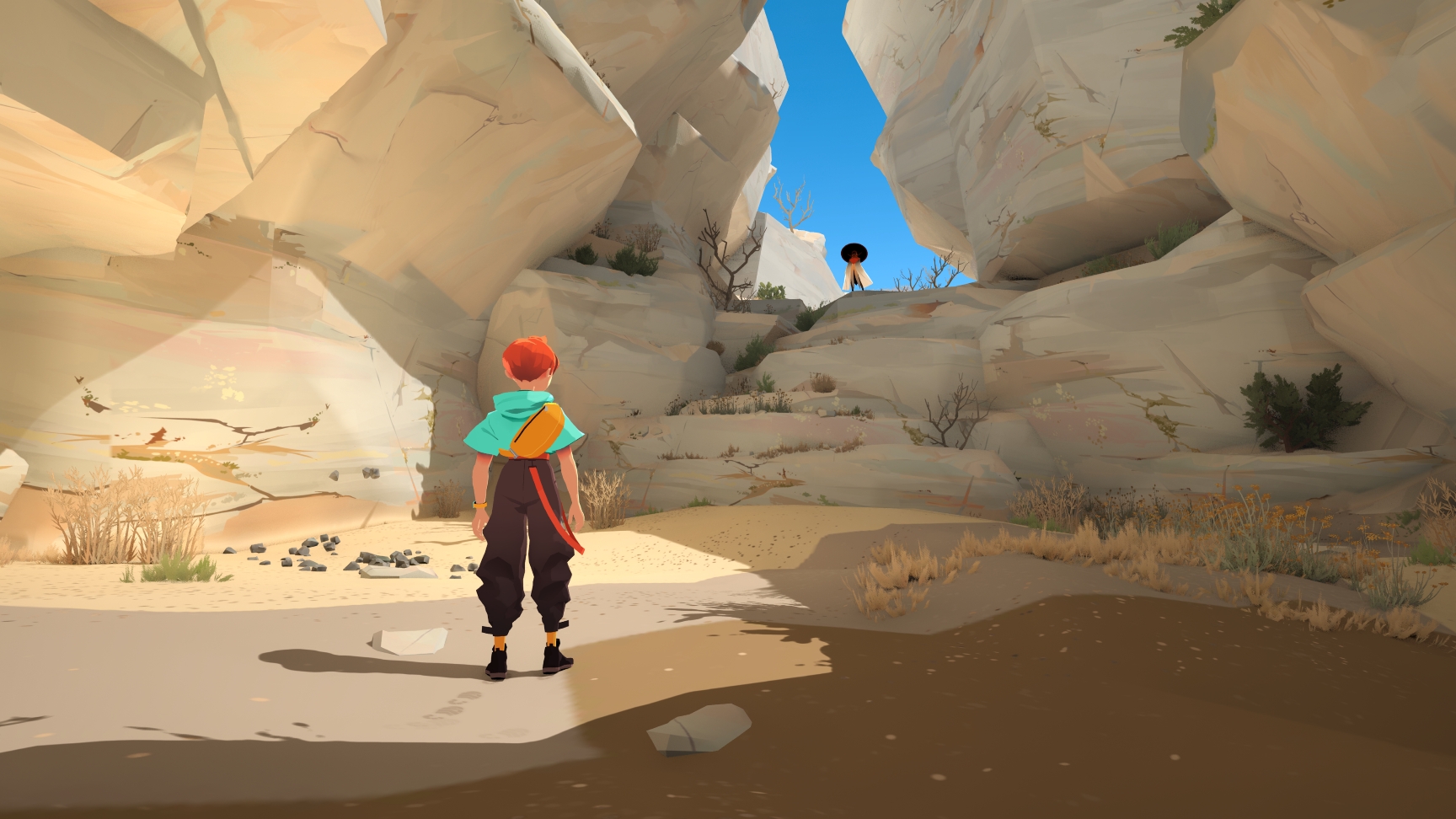
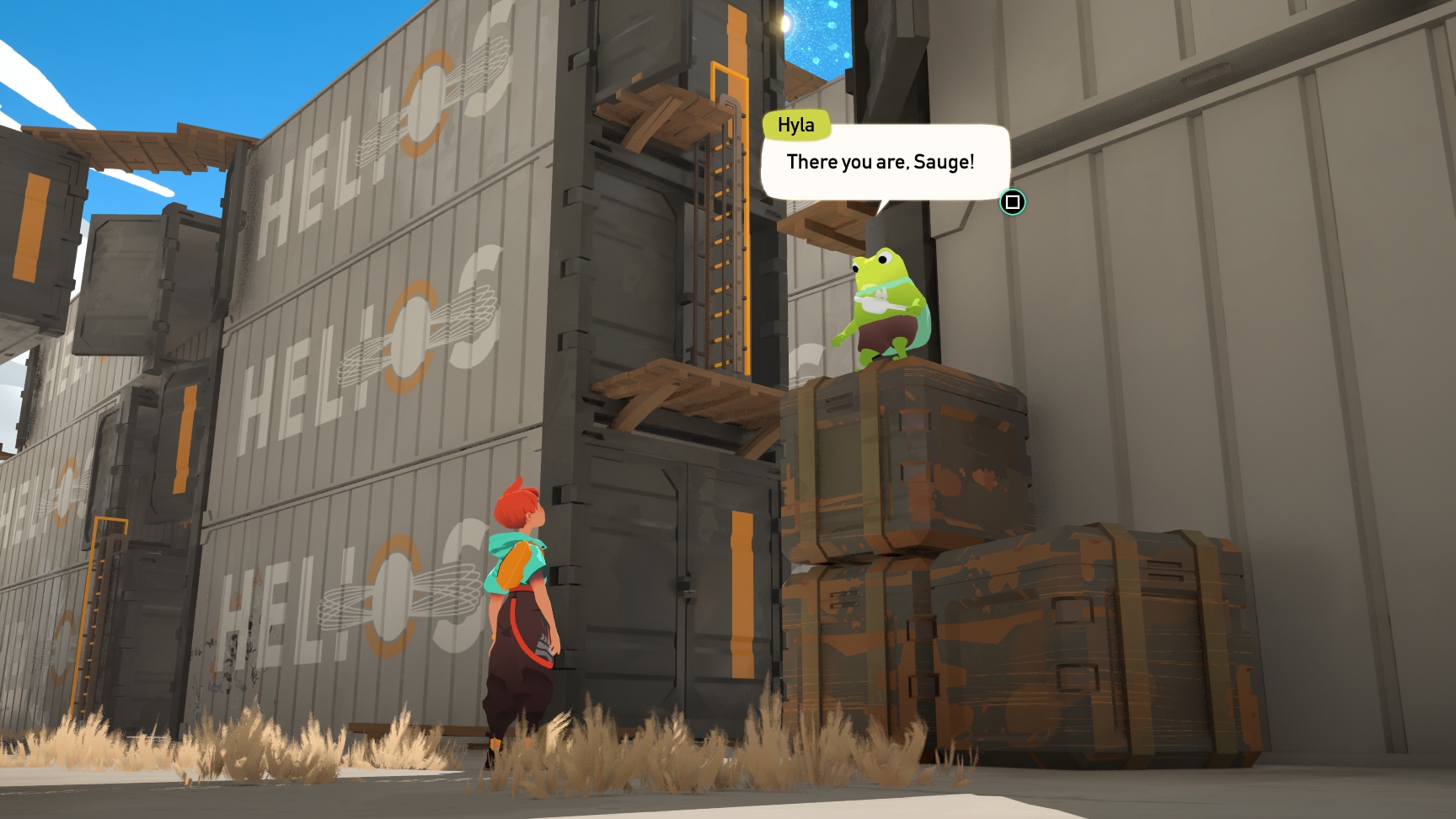
You play as Sauge, a teenage space station resident who's just received a distress signal from her sister Garance, who disappeared six years ago and has been assumed dead ever since. Determined to find out what really happened to her sister, Sauge hitches a ride down to the planet's surface to find more information in her old hometown, Estello Village. Along the way she reunites with old friends, repairs her damaged relationships, and reflects on the sobering realities of life in a minuscule town staring down the barrel of unchecked, literally apocalyptic capitalism.

It's the sort of game that has to hit you at a really particular time in your life, I think. As a lifelong city dweller, I don't think it would have resonated so much with me if not for my living in a tiny rural farming town for the last four years. Estello Village is tiny, only hosting a handful of residents, whose dialogue can sometimes feel a bit thin and frank... but that's how people talk in a small town. Their problems might seem a little mundane -- fixing a water pipe for the crops, finding stuffed animals for the baby -- but there's an undercurrent of unease when you're reminded that these people are basically fighting every day to maintain their lives in the face of corporate ecological destruction that will, someday, erase their town as well. These characters are not waiting to die, they're not pitiful zombies waiting for the corporation to come mop them up; they're hardworking people who are doing their best to keep living the only way they know how. Caravan is a game about feeling powerless in the shadow of larger, unmanageable forces that you simply have no ability to combat. It's hard (for me, anyway, YMMV) not to feel parallels to the current economic situation in the US. We're all waiting for the other shoe to drop and see how the current catastrophes will affect us directly. The game itself is of French origin, but I guess we're all feeling it right now, aren't we?
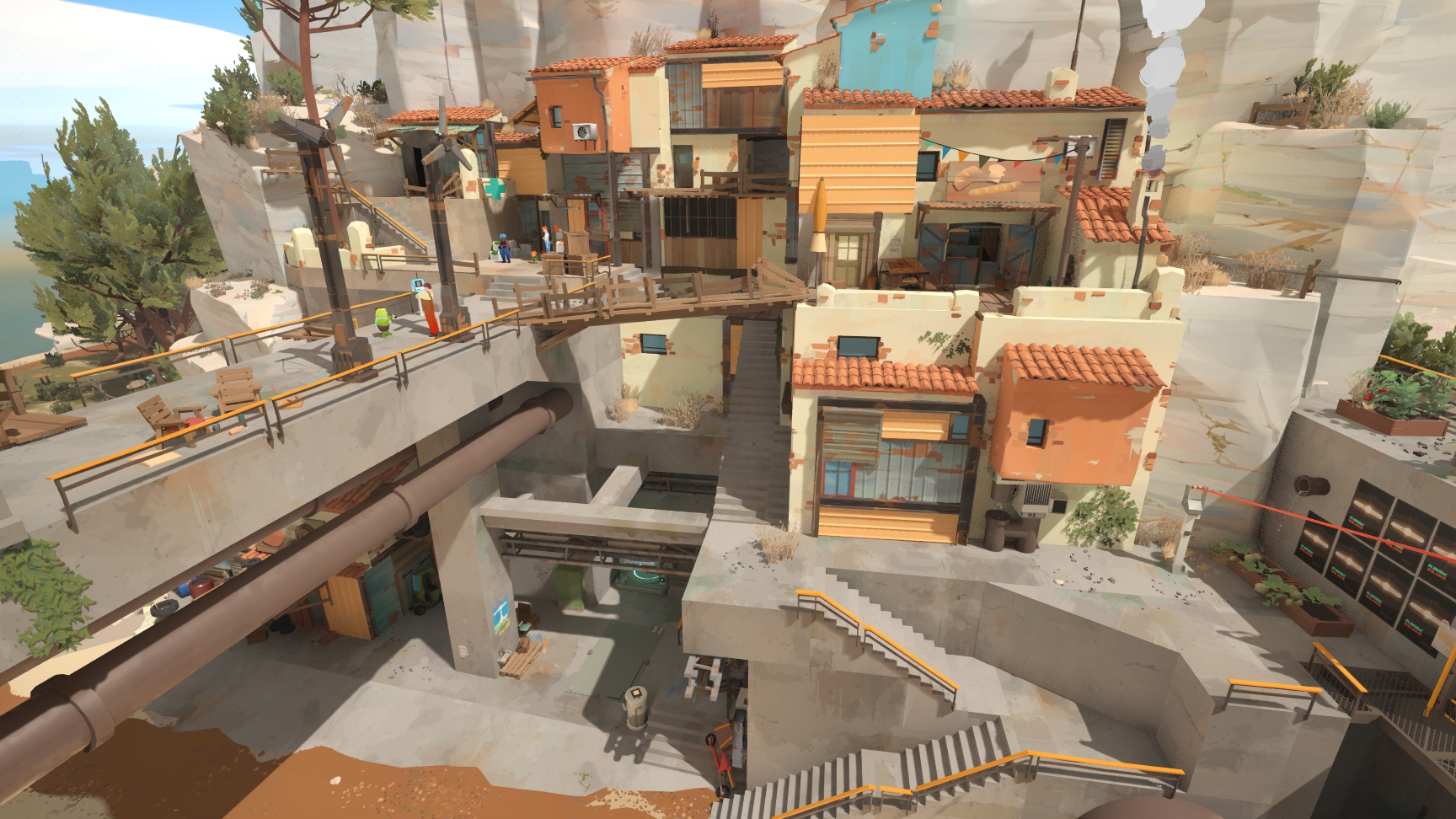
Estello Village, your little home in the desert.
As much as I love these undercurrents of melancholy that I see in Caravan, I must admit that they're a bit too under the surface. This isn't a sickly sweet uwu wholesome type of indie game (nothing against those games, though), but it is still shooting for that "cozy games" audience, which unfortunately means that the story often feels like it's pulling its punches. It could stand to be a little darker, or a little more dangerous, to really hit home with its bittersweet mood and characters' nagging ennui, but it holds back in an effort to still be seen in the same category as games like Frog Detective and Mail Time -- which is a little disappointing to me personally. Caravan's story has so much potential to really tug at your heartstrings or make you feel uneasy, and it does do that at key moments -- I just wish it did it more, and harder. I do wish the story writing was a little more robust, as well. The ending is unfortunately lacking, as 99% of video game endings are; it's way too brief and a little muddled, which is a shame as it tries to introduce some compelling, sad concepts right at the very last moments, and one of its two endings feels markedly more sad and ominous than the other, almost unfittingly so -- but as a pair, the two endings really seem more like an issue of the devs being unable to decide which one to go with, rather than having a compelling love for both endings. I think the story would be stronger if both endings had been merged into one, honestly.
Even with those nitpicks of mine, I still wholeheartedly encourage anyone to play it if it looks cool to you. It is a beautiful, peaceful, chill-out game with fun "come back with this gadget" exploration, fun characters, and a world with an unexpected depth. I even bothered to get platinum for it, and I never care about platinum. It's a world I will happily revisit if developer Plane Toast decides to do a sequel, but they'll have to move a little past the "cozy" tag if they want to pursue the implications of Caravan's ending, which I hope they do. I really do miss my little friends in Estello Village.
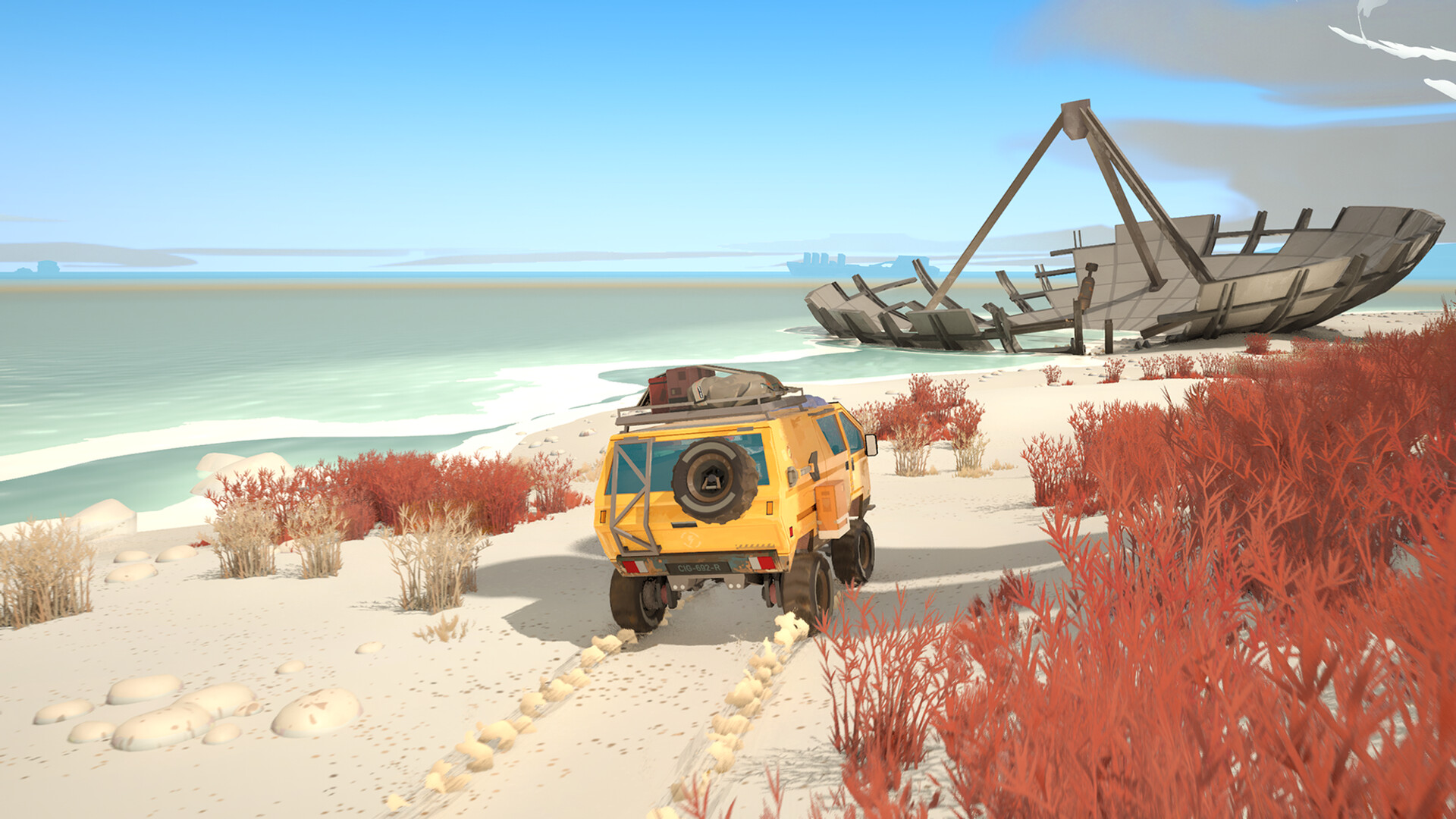
Pictured: THE best friend in Estello Village.
Source: Steam.
